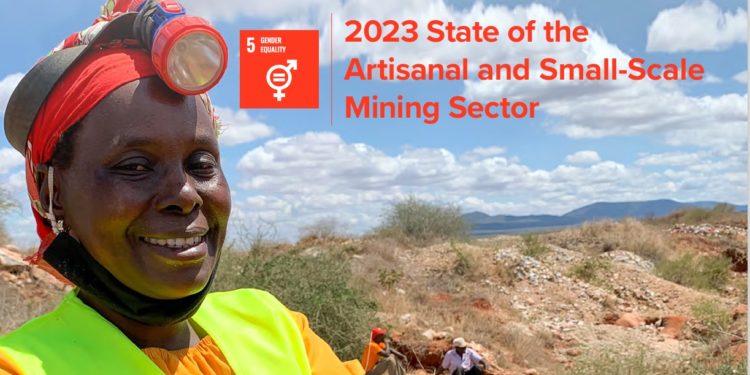By Kemo Cham
Despite their important contribution to the mining sector, women involved in artisanal and small-scale mining around the world have been deprived of economic opportunities, a new report has revealed.
The World Bank report released at the ongoing annual Mining Indaba Conference, catalogues how gender discrimination, enshrined in mining laws, and disregard for health, safety, and social protection limit the rights and economic opportunities of women involved in the sector which supplies minerals essential to modern technologies and the global energy transition.
The Mining Indaba Conference is an annual event that is dedicated to the capitalization and development of mining in Africa. It connects mining companies with leading investors and provide a platform for important industry discussions.
The organizers of the Mining Indaba describe it as the world’s largest mining investment conference.
This year’s event in Cape Town, South Africa, being held on the theme: “Embracing the power of positive disruption: a bold new future for African mining,” is the 30th edition of the Investing in African Mining meeting. Part of its lineup of activities from February 5 – 8 is the launch of the 2023 State of the Artisanal and Small-Scale Mining Sector report, a collaboration with the international development organization.
The report details gender inequalities in artisanal and small-scale mining and highlights actions to improve gender equality and advance women’s participation.
The authors reviewed mining laws in 21 countries across Sub-Saharan Africa, East Asia and the Pacific, and Latin America.
“Women in artisanal and small-scale mining face formidable challenges that require urgent action to ensure they are safe and can thrive in the mine and at home,” said World Bank Global Director for Energy and Extractives, Demetrios Papathanasiou, adding: “We are thrilled to release this ground-breaking report, which offers concrete solutions to create a more inclusive and equitable mining sector that benefits women and everyone.”
World Bank data shows that artisanal and small-scale mining plays a crucial role in the global mining industry, employing approximately 45 million people across 80 countries, making it the largest mining workforce in the world.
Rachel Perks, World Bank Senior Mining Specialist and co-author of the report, said women’s empowerment and equal participation in mining are the right thing to do and would pave the way for a more just future and prosperous communities.
“It’s critical to create an environment in which women artisanal and small-scale miners can be heard and enjoy their rights without discrimination,” she was quoted in a statement.
Sierra Leone is one of the countries featured in the report which highlights deep-seated barriers women, who account for about one-third of the artisanal and small-scale mining workforce, face in fully participating in ASM activities and opportunities toward gender equality.
The authors acknowledged efforts by successive Sierra Leone governments to formalize the sector but noted that these haven’t yielded the desired results due to a combination of factors.
“Attempts at formalization in the Sierra Leonean mining sector have been few with women given limited consideration,” says the report noting however that broader laws and regulations were now empowering women, including those in the ASM sector.
Among the myriad of issues faced by women in ASM in Sierra Leone are difficulty accessing finance, poor and unequal access to land, lack of skills training, inappropriate technology, functional literacy problems, and a lack of marketing and finance skills.
The report advocates for gender-responsive legislation to safeguard women’s rights in mining and build a more sustainable sector in the country.
Sierra Leone was recognized for making progress in the legislative front.
Among several recommendations, the authors encouraged the Sierra Leone government to encourage and even require, where appropriate, women’s participation in decision making.
“This could include simple measures such as promoting women’s inclusion in site-level committees and ensuring their representation during wider stakeholder consultations for the ASM sector,” it says.






















